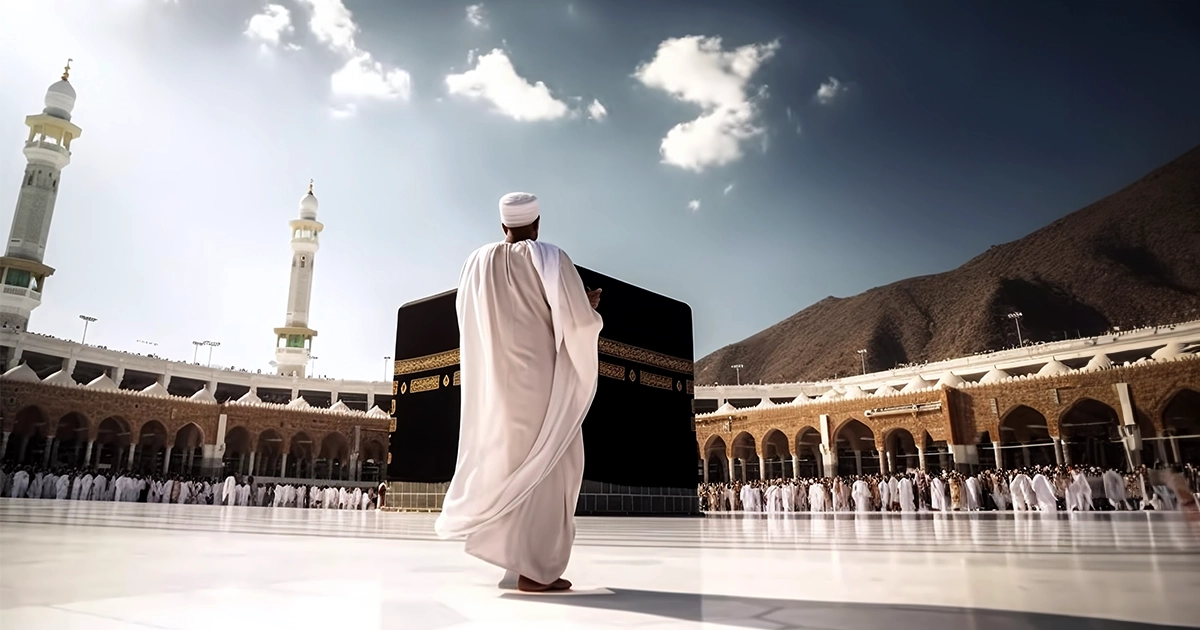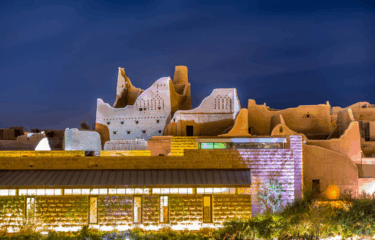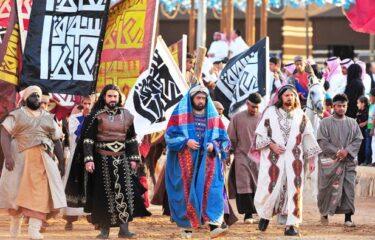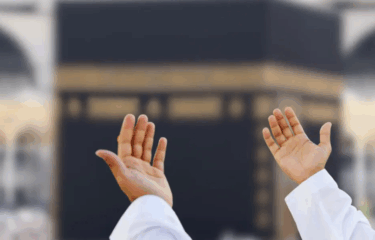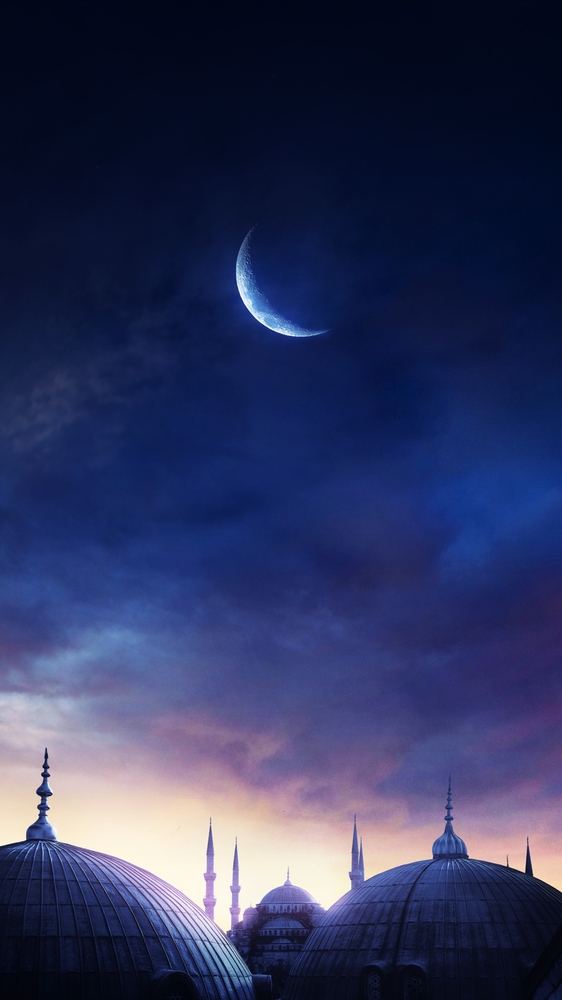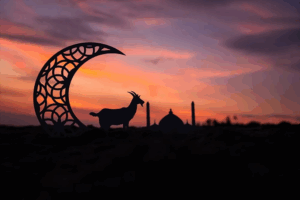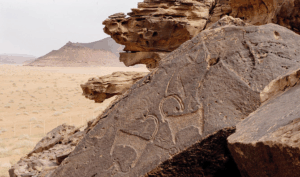Imagine standing before the Kaaba, your heart swelling with awe, your eyes glistening with tears you didn’t know you were holding back. The air is thick with prayers, a quiet hum of devotion surrounds you, and in that moment, it’s just you and your Creator. This isn’t just a journey — it’s a homecoming for your soul.
Umrah is more than an act of worship. It’s a chance to cleanse your heart, reconnect with your faith, and fulfill a longing that lives deep within you. For many, this pilgrimage is a dream nurtured over years, a sacred whisper calling you to the holy cities of Makkah and Madinah. And when that dream starts to become reality, the path can feel overwhelming.
But you’re not alone. This guide is here to walk with you every step of the way — from preparing your heart and mind to packing the essentials. By the end, you won’t just be ready for Umrah; you’ll feel an anticipation so powerful, you can almost hear the echoes of your footsteps in the Holy Mosque.
Understanding Umrah: What You Need to Know
Before planning your trip and start preparing for Umrah, it’s essential to understand what Umrah truly means. Unlike Hajj, which is mandatory and must be performed during a specific period, Umrah is a voluntary pilgrimage you can undertake at any time of the year. Yet, its spiritual weight is immense, offering a chance to cleanse your soul and deepen your connection with Allah (SWT).
Umrah consists of four key rituals:
- Ihram – Entering a state of spiritual purity by wearing the prescribed garments and making your intention.
- Tawaf – Circumambulating the Kaaba seven times in a counterclockwise direction.
- Sa’i – Walking between the hills of Safa and Marwah seven times, commemorating Hajar’s search for water.
- Tahallul – Shaving or trimming your hair, symbolizing the completion of your Umrah.
Understanding these steps beforehand helps you approach the journey with purpose and clarity. Visualize yourself performing these rituals and reflect on their significance. This will prepare your mind and heart for the transformative experience ahead.
Cultivating the Right Mindset While Preparing for Umrah
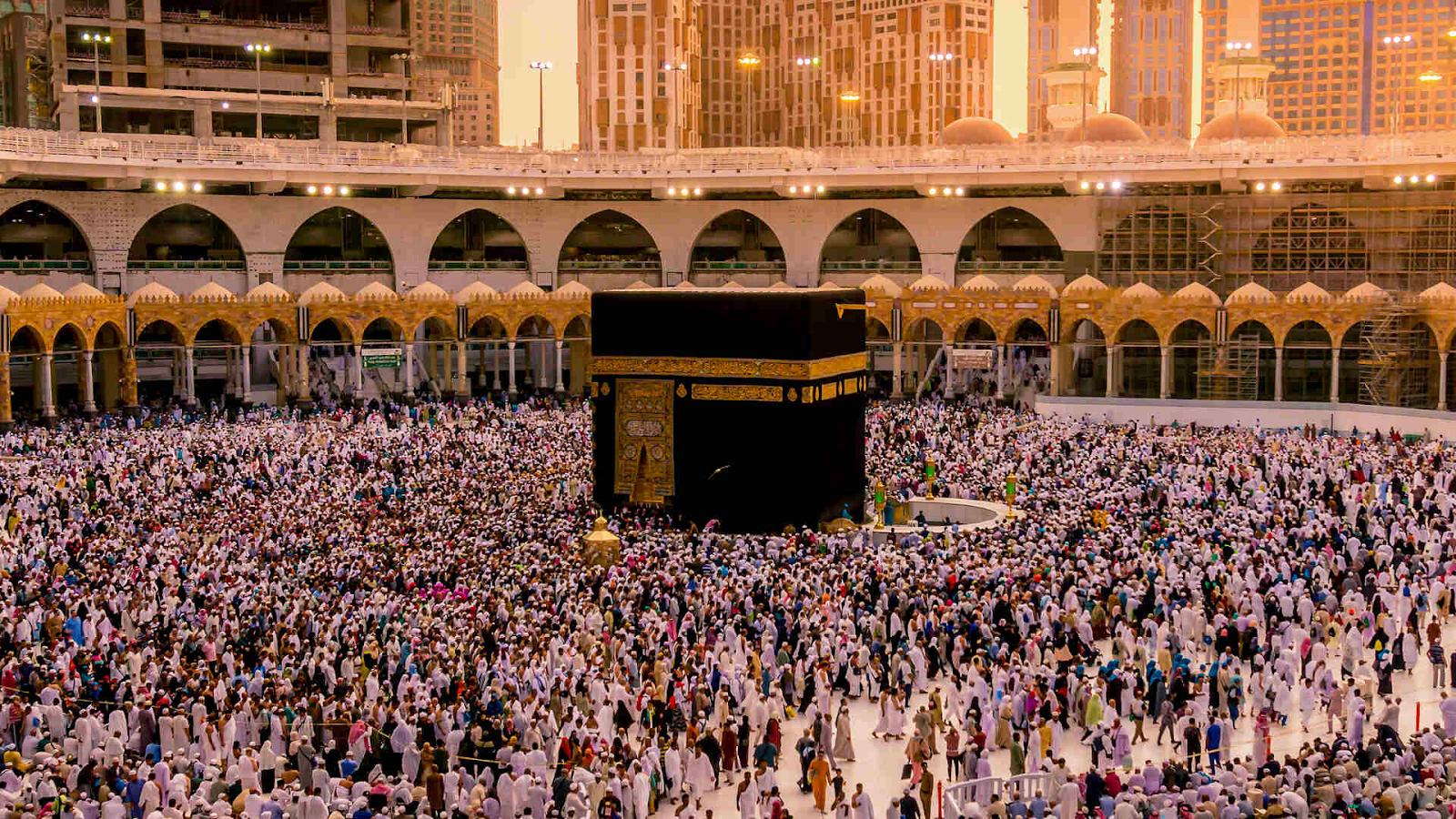
Umrah is not just a physical journey; it’s a journey of the soul. To truly benefit from this sacred experience, begin your preparation by focusing inward.
- Seek Forgiveness: Clear your conscience by seeking forgiveness from Allah (SWT) and those around you. This helps you start your journey with a clean heart.
- Learn the Rituals and Supplications: Familiarize yourself with the specific supplications and the steps of Umrah. Knowing what to recite during each stage will enhance your sense of devotion and focus.
- Make a Sincere Intention (Niyyah): Set your intention for Umrah with clarity and sincerity. Remind yourself why you’re undertaking this journey — to seek closeness to Allah and spiritual renewal.
- Increase Worship and Reflection: Spend more time in prayer, reading the Quran, and engaging in dhikr (remembrance of Allah). Reflect on the importance of patience, humility, and gratitude.
- Practice Gratitude: Remind yourself that being able to perform Umrah is a gift and privilege. Approach it with a heart full of thankfulness.
The stronger your spiritual preparation, the more meaningful your Umrah will feel. Let your heart be light, your mind focused, and your soul open to the blessings ahead.
The Practical Side of Preparing for Umrah
Choosing the Right Time to Travel
While Umrah can be performed year-round, the timing of your trip can greatly affect your experience. Consider the following:
- Off-Peak Seasons: Avoid Ramadan and major holidays if you prefer fewer crowds.
- Weather: The cooler months between November and February offer more comfortable conditions for walking and prayer.
Booking Flights and Accommodation
Book your flights early to get the best rates. Aim to stay close to the holy sites:
- In Makkah, look for hotels near Masjid al-Haram.
- In Madinah, opt for accommodation near Masjid al-Nabawi.
Staying within walking distance saves time and energy, especially during busy prayer times.
Visa and Documentation
When preparing for Umrah, check the latest visa requirements through the official Saudi e-visa portal or a trusted travel agent. Make sure you have:
- A passport valid for at least 6 months.
- Multiple copies of your travel documents along with scanned copies of everything in your phone.
- Travel insurance that covers healthcare and emergencies.
Financial Planning
Prepare a budget that covers:
- Flights and accommodation
- Meals and daily expenses
- Local transport (taxis, buses, ride-sharing)
- Shopping for souvenirs and gifts
- A buffer for unexpected costs
A little financial planning will ensure a stress-free pilgrimage.
Your Must-Have Umrah Packing List
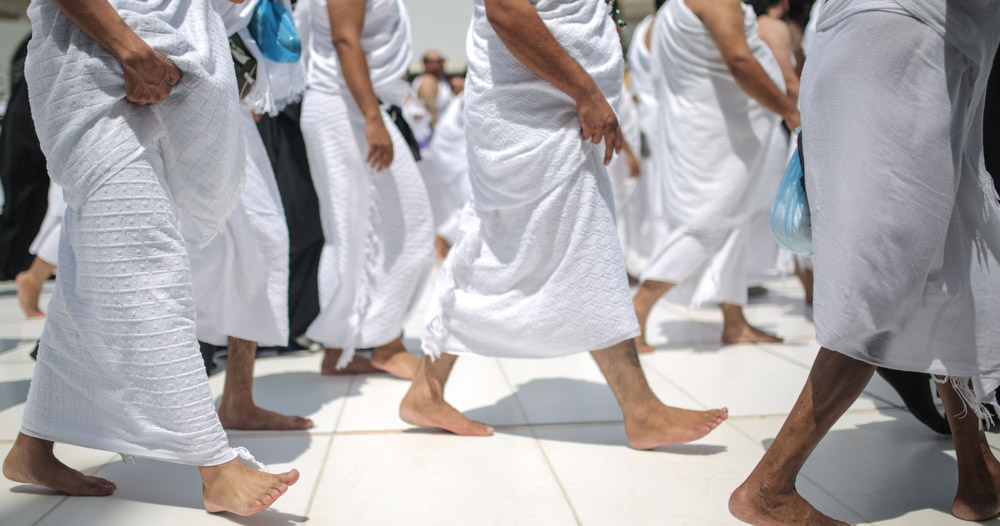
Packing smart is essential for preparing for Umrah. Use this comprehensive checklist to ensure you are well-prepared for everything:
Clothing Essentials
- Men: 2-3 sets of Ihram (simple white, seamless garments)
- Women: Loose, modest clothing like abayas and hijabs in breathable fabric
- Comfortable sandals or flip-flops for walking between sites and trainer shoes for visiting the malls
Daily Necessities
- Passport, visa, and travel itinerary
- Wallet with Saudi Riyals (SAR)
- Waist pouch for valuables
- Reusable water bottle to stay hydrated
- Unscented toiletries (soap, deodorant, wipes)
Health and Safety Items
- Basic first-aid kit (pain relievers, bandages, antiseptic)
- Prescription medications
- Hand sanitizer and face masks for crowded areas
- Sunscreen and sunglasses for protection against the sun
Spiritual Items
- A pocket-sized Quran and a book of supplications
- Notebook and pen for reflections
- A prayer mat for convenience
- A tasbeeh / digital counter
Tip: Pack light, but ensure you have everything to keep you comfortable and focused on your pilgrimage.
How to Stay Fit and Safe During Umrah
Umrah requires endurance, so physical and mental well-being are key.
Before You Travel
- Start Walking Regularly: Build your stamina by walking 30-45 minutes daily, especially if you’re not used to long distances.
- Vaccinations: Check the Saudi Ministry of Health guidelines for mandatory vaccines like meningitis and recommended ones like flu shots while preparing for Umrah.
During Umrah
- Stay Hydrated: Drink plenty of water, especially in the hot Saudi climate.
- Eat Balanced Meals: Opt for nutritious, energy-sustaining foods. Dates, nuts, and fresh fruits are great options.
- Protect Yourself in Crowds: Wear a mask in densely populated areas to minimize exposure to germs.
- Listen to Your Body: Take breaks when needed and don’t push yourself too hard.
By staying healthy and vigilant, you can focus fully on the spiritual purpose of your journey.
What to Expect During Your Umrah
When you arrive in Makkah, the anticipation is palpable. Your first glimpse of the Kaaba is an emotional, unforgettable moment. Take a deep breath and let the experience wash over you.
Follow the steps of Umrah with focus and devotion:
- Enter the state of Ihram and recite the Talbiyah.
- Perform Tawaf — seven anti-clockwise circuits around the Kaaba.
- Pray behind Maqam Ibrahim if possible, or anywhere in the Haram.
- Drink Zamzam water and make heartfelt supplications.
- Complete Sa’i by walking between Safa and Marwah.
- Conclude with Tahallul — men shave their heads, women trim a small portion of hair.
Stay patient and calm. The crowds can be intense, but keeping your intention in mind will help you stay centered.
Visiting Madinah – The City of Peace
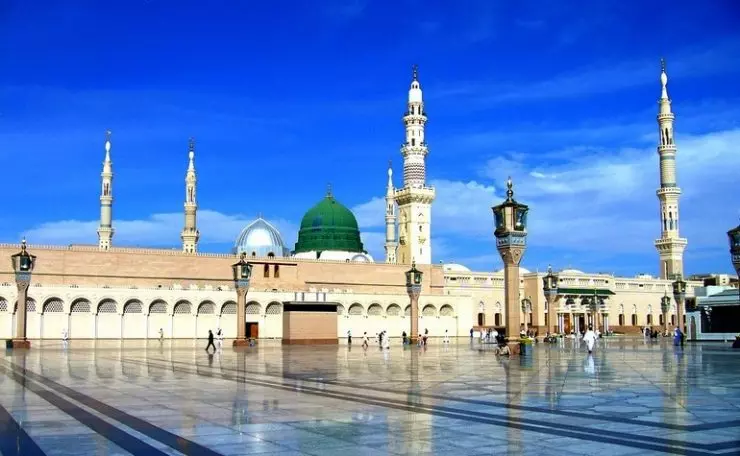
Madinah is an experience of calm, reflection, and reverence. The air here feels lighter, the streets quieter, and the heart naturally more at ease. This is where the beloved Prophet Muhammad (PBUH) spent his final years and where his presence still touches every soul who visits.
As you approach the magnificent Masjid al-Nabawi (Prophet’s Mosque), you’ll feel a sense of serenity wash over you. The towering minarets, the sprawling courtyards, and the iconic green dome create a scene that invites you to pause and breathe. The moment you enter, the world’s noise fades away, leaving you in a space where worship and reflection come naturally.
Standing before the Prophet’s tomb, you’re not just visiting a sacred site — you’re connecting with centuries of faith and devotion. Here, you can offer your salaam (greetings) to the Prophet (PBUH) and feel the weight of his teachings and love. Each prayer in this mosque carries a special intimacy, a closeness that’s hard to describe.
Make it a priority to visit the Rawdah, the small, sacred space between the Prophet’s tomb and the pulpit. Described as a “garden of paradise,” praying here is a blessing that many seek. Yes, it may take patience to enter, but once you’re there, the moment feels timeless and your supplications feel deeply personal.
Madinah invites you to slow down, reflect, and reconnect with your spiritual self. It’s a city that leaves a lasting imprint on your heart, a place you’ll long to return to even after you leave. The peace you find here is one that you carry with you — a gentle reminder that your faith, like this city, is always there to comfort you.
Reflect and Share Your Experiences After Umrah
Your journey may end physically, but spiritually, it continues to ripple through your life. Once you’re back home, give yourself time to reflect. Sit quietly with your thoughts. Recall the moments that moved you the most — the first sight of the Kaaba, the tranquility of Sa’i, or the peaceful prayers in Madinah. How did these experiences touch your heart? What feelings linger? What realizations have reshaped your faith?
Write these reflections down. Journaling your thoughts helps capture the essence of your experience and keeps those memories vivid. Consider the challenges you faced and the blessings you received. How did your Umrah change your perspective on life, gratitude, and devotion? What lessons do you want to carry forward?
But don’t keep these precious moments to yourself. Share your experience with family, friends, or your local community. Your journey can inspire someone who is longing to take the same path. Whether through storytelling, social media posts, or even a simple conversation, your words can spark faith and motivation in others. You never know — your story might be the push someone needs to embark on their own spiritual journey.
Umrah is a personal voyage, but its impact extends beyond you. By reflecting and sharing, you keep the blessings of your pilgrimage alive, not only for yourself but for those around you.
Begin Your Path to Spiritual Fulfillment
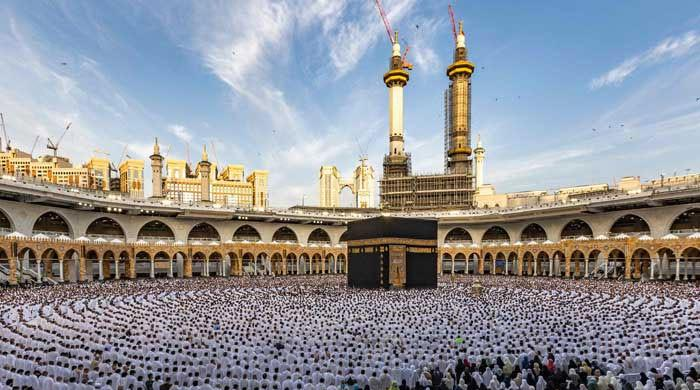
As you step away from the holy sites, your heart will feel lighter, your mind clearer, and your soul renewed. But the journey doesn’t end with your last Tawaf or your final prayer in Madinah. It carries on within you, in every whispered supplication and every moment of gratitude that follows.
From the moment you start preparing for Umrah, you embark on a journey of lifelong transformation that will enrich your soul. The memories of standing before the Kaaba, the peace of praying in Madinah, and the quiet moments of reflection will stay etched in your heart. It’s a chance to realign your life, to return home carrying the light of this sacred experience.
So, prepare yourself. Pack your essentials, ready your soul, and open your heart to a journey that transcends time and place.
Your Umrah awaits. It’s time to answer the call.
FAQs
What is the difference between Umrah and Hajj?
Umrah is a voluntary pilgrimage that can be performed at any time of the year, while Hajj is a mandatory pilgrimage performed during specific days in the Islamic calendar.
Do I need a visa for Umrah?
Yes, travelers need a visa to perform Umrah. Make sure to check the latest visa requirements through the Saudi e-visa portal or through a licensed travel agent.
Can I perform Umrah without being in a state of Ihram?
No, entering the state of Ihram is an essential part of the Umrah pilgrimage. It symbolizes spiritual purity and is required to begin the rituals.
How long does it take to complete Umrah?
The rituals of Umrah typically take a few hours to complete, but it can vary depending on the crowd size and how long you spend at each site.
Is it necessary to be in excellent physical health to perform Umrah?
While good physical health can make the journey easier, Umrah can be performed by people of all ages. It’s important to take care of your health and take breaks when needed during the pilgrimage.

